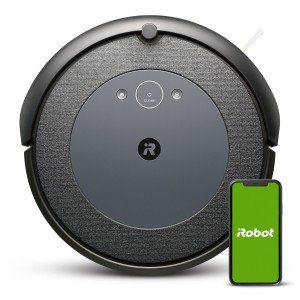This Is How Robot Vacuum Cleaner Price Will Look Like In 10 Years' Time
Understanding Robot Vacuum Cleaner Prices: A Comprehensive Guide
In recent years, robot vacuum cleaners have actually changed the way people clean their homes. bagless robot vacuum of usage, convenience, and advanced innovation have actually made them increasingly popular. However, with a variety of models and features available, potential buyers often discover themselves asking a sixty-four-thousand-dollar question: What should I expect to pay for a robot vacuum cleaner? This article aims to clarify the expenses connected with robot vacuum, aspects that affect their prices, and tips for discovering the best gadget for your budget.
The Price Range of Robot Vacuum Cleaners
Robot vacuum cleaners can vary commonly in price. Here, we break down the typical price range for various classifications:
Category
Price Range
Description
Entry-Level
₤ 100 – ₤ 250
Standard features, ideal for little spaces, minimal smart technology.
Mid-Range
₤ 250 – ₤ 500
Boosted cleaning abilities, better navigation, some smart functions.
High-End
₤ 500 – ₤ 1,000+
Advanced mapping, effective suction, internet connection, and app integration.
Entry-Level Models
Affordable robot vacuums are perfect for those who require a basic cleaning tool without luxury features. They typically deal with difficult floors well but may have a hard time with carpets and are usually less long lasting.
Mid-Range Models
These vacuums typically come geared up with much better suction power and more intelligent navigation systems, making them appropriate for bigger homes with blended floor covering. Numerous designs in this variety deal Wi-Fi connection and smart device control.
High-End Models
High-end robot vacuums are created for severe cleaning lovers. They usually use innovative mapping technology, effective suction, and built-in video cameras for enhanced navigation. Additionally, many high-end models permit vacuuming on a schedule and even have the capability to clear their dust bins instantly.
Elements Affecting Robot Vacuum Prices
Understanding the factors that can influence the price of a robot vacuum can help customers make more informed getting choices. The following list lays out some essential functions that can affect price:
Brand Reputation: Established brand names typically bring a greater price tag due to their track record and reputable customer support.
Cleaning Technology:
- Suction Power: More effective models will be more expensive.
- Navigation Systems: Advanced models with better challenge detection and mapping capabilities cost more.
Smart Features: Models that provide connection to apps, voice control compatibility, and advanced scheduling alternatives tend to be priced higher.
Battery Life: Longer-lasting batteries generally lead to a higher price, as they permit the vacuum to clean bigger locations without needing to charge.
Dustbin Size: Larger dustbins can be easier for customers, promoting a higher price point.
Extra Features: Some vacuums use mopping abilities, self-cleaning functions, and high-efficiency filters, which can increase their price.
Budget vs. Features: What to Consider
When purchasing a robot vacuum, it's necessary to weigh your budget versus the features you most desire. Here are numerous considerations to assist you make an informed decision:
1. Assess Your Home's Needs
Size of Space: Larger homes might take advantage of more sophisticated vacuums that can cover more ground without frequent charging.
Floor Types: If your home contains a mix of carpet and tough floorings, go with a vacuum designed for both.
2. Determine Desired Features
- Decide which features are vital for you, such as scheduling, app connectivity, and cleaning modes.
3. Price vs. Durability
- While a greater investment can yield longer-lasting designs, it's worth considering lower-cost options if you're unpredictable about long-term usage.
Frequently Asked Questions (FAQs)
Q1: Are robot vacuums worth the investment?
A1: If you lead a busy lifestyle or have movement problems, a robot vacuum can save considerable effort and time in cleaning, making them a worthwhile investment.
Q2: How frequently should I change a robot vacuum?
A2: Depending on the design and usage, a robot vacuum usually lasts between 3 to 5 years. High-end models might last longer with proper upkeep.
Q3: Can a robot vacuum completely replace a traditional vacuum?
A3: While robot vacuums efficiently deal with everyday cleaning, they may not replace traditional vacuums for deep cleaning, particularly in multi-level homes or areas needing substantial care.
Q4: What is the average life expectancy of a robot vacuum?
A4: The lifespan of robot vacuums differs by design, but a lot of last in between 3-5 years with routine maintenance, like dustbin emptying and filter changes.
Q5: Do robot vacuums deal with carpets?
A5: Yes, however the efficiency will depend upon the model. Higher-priced models usually have better suction power to clean carpets successfully.
The marketplace for robot vacuum cleaners is varied, with models to fit numerous budgets and cleaning needs. Whether consumers are searching for a fundamental cleaning tool or an innovative gadget equipped with many smart functions, understanding the price varieties and factors impacting costs is crucial. With careful factor to consider of individual needs and monetary restraints, prospective purchasers can find a robot vacuum that will enhance their cleaning regular and provide long-term satisfaction.
